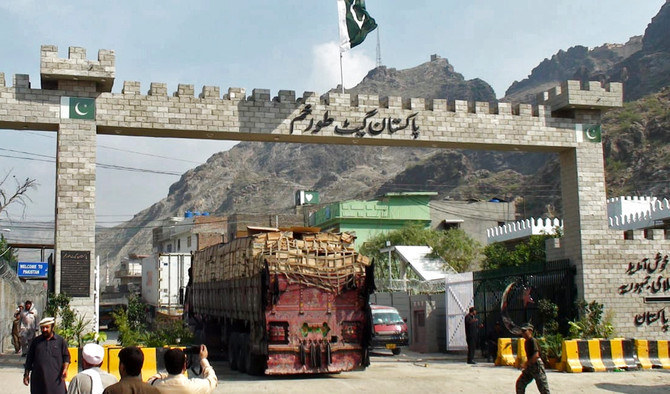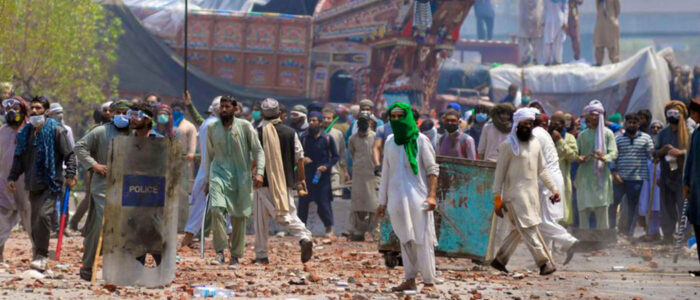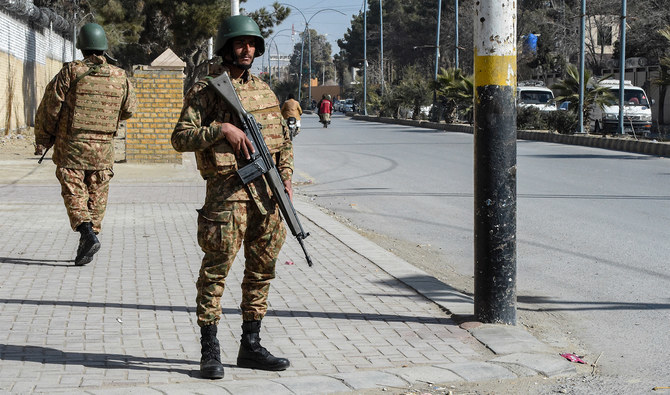By Riaz Hussain
Preparations have been finalised to reopen the Torkham trade gateway along the Pakistan–Afghanistan border for bilateral commerce, customs officials confirmed on Monday. The crossing may resume operations as early as tomorrow, signalling a possible breakthrough in restoring stalled trade between the two neighbours.
According to customs sources, staff have been redeployed at the Torkham terminal, and cargo scanners have been installed to facilitate clearance procedures. The key crossing has remained closed for the past nine days due to heightened border tensions, leaving thousands of cargo trucks stranded on both sides of the Border.
The closure has paralysed import, export, and transit trade. Pakistan exports cement, pharmaceuticals, textiles, fruits, and vegetables to Afghanistan, while importing coal, soapstone, and dry and fresh fruits from the neighbouring country.
Customs data shows that the Torkham crossing alone handles an average of PKR 850 million in daily bilateral trade, including PKR 580 million in exports and PKR 250 million in imports, contributing around PKR 50 million daily to Pakistan’s exchequer.
Ceasefire Brings Calm but Not Commerce
Despite a Qatar-brokered ceasefire between Pakistan and Afghanistan, key trade routes remain sealed, frustrating traders and businesses on both sides. The truce, hailed as a diplomatic success, has so far failed to translate into economic relief.
Officials confirmed that the Chamman crossing in Baluchistan, Ghulam Khan and Khar-lachi border points in KP may also reopen in the coming days, as part of broader efforts to normalise border activity.
Tensions Rooted in Security Concerns
Relations between Islamabad and Kabul have deteriorated in recent months following cross-border clashes and Pakistan’s allegations that the Afghan Taliban are sheltering militants of the banned Tehrik-i-Taliban Pakistan (TTP). Kabul has rejected these claims.
Analysts noted that during a recent internet blackout in Afghanistan, several TTP-linked online channels went offline — a development viewed as indirect evidence of their presence inside Afghan territory.
Meanwhile, Khyber Pakhtunkhwa province, the traditional frontline against militancy, remains tense. Hundreds of Pakistani soldiers have lost their lives in militant attacks this year, leaving local communities trapped between renewed insurgency and security operations.
“Peace on Paper, Blockade on Ground”
While both governments reaffirmed their commitment to the Doha peace framework, traders say the reality on the ground remains grim. “The ceasefire brought calm, but not commerce,” a Peshawar-based analyst observed.
Two major categories of trade — transit trade and general exports — have been severely affected. Pakistan’s exports, such as construction materials and textiles, can withstand delays, but Afghanistan’s perishable goods are suffering the most.
“Unfortunately, the Taliban authorities appear indifferent to the financial losses faced by their own traders,” said one local journalist, urging Kabul to favour dialogue over confrontation.
Losses Mounting Toward $1 Billion
According to Khan Jan Alkozai, former chairman of the Pakistan–Afghanistan Joint Chamber of Commerce and Industry, nearly 2,000 trucks used to cross the border daily before the closure. Now, with movement halted, Afghan produce — including grapes, apples, and vegetables — is being dumped at throwaway prices.
“Both countries have already lost over $700 million, and the figure could exceed $1 billion if the blockade continues,” Alkozai warned.
Bilateral trade has already declined from $2 billion to $1.5 billion, while more than 700 Afghan transit containers remain stranded at Karachi and Port Qasim, causing congestion and heavy demurrage charges.
Karachi–Torkham vs. Chabahar: The Strategic Equation
The ongoing blockade has reignited debate over Afghanistan’s dependence on Pakistan’s trade routes versus its growing reliance on Iran’s Chabahar Port, developed with Indian assistance.
Historically, 70–80% of Afghan trade passes through Pakistan’s Karachi–Torkham corridor, known for affordability and efficiency. Chabahar currently handles 15–20% of Afghan imports but remains limited by higher costs and weaker infrastructure.
“Afghanistan’s pivot to Chabahar may carry political symbolism,” one analyst remarked, “but for real trade, Karachi and Torkham remain irreplaceable.”
Traders Call for Diplomacy and Dialogue
Shakir Khan Afridi, president of the Truck Owners Association, said hundreds of trucks with perishable goods are stuck at the border.
“Trade is the real bridge between Pakistan and Afghanistan. Ceasefires alone cannot bring stability — commerce and cooperation can,” he said.
Business communities in both countries echoed this sentiment, calling for diplomatic engagement and open borders to foster regional peace and economic stability.
The Road Ahead: From Ceasefire to Commerce
As Pakistan and Afghanistan prepare for another round of talks in Istanbul later this year, observers stress that the success of the Doha ceasefire will be measured not by silence along the frontier, but by the resumption of trade.
For now, the guns have gone quiet, but the silence of commerce still echoes across Torkham, Ghulam Khan, and Kharlachi. Until the trucks roll again, peace between Pakistan and Afghanistan will remain a promise unfulfilled.






